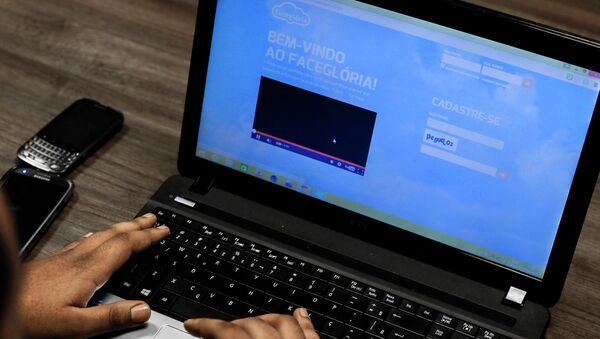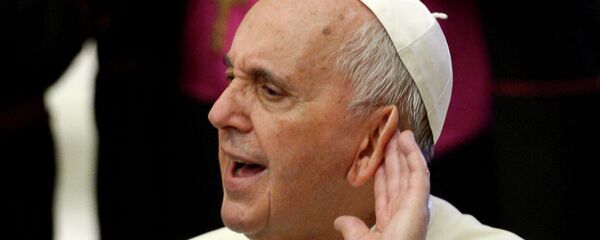"On Facebook you see a lot of violence and pornography. That's why we thought of creating a network where we could talk about God, love and to spread His word," Atilla Barros said.
The site was made by people who had worked at the mayor's office in Ferraz de Vasconcelos, near Sao Paolo. The goal of the religious group is to attract those Brazilian Evangelicals, who use other social networks, according to creators.
"We want to be morally and technically better than Facebook. We want all Brazilian Evangelicals to shift to Facegloria," Mr. Barros stated.
Over 100,000 users from Brazil have signed up for Facegloria in its first month of operation, according to creators’ statistics.
"Our public doesn't publish these kinds of photos," said one of the volunteers, Daiane Santos, who is working for Facegloria for free six hours per day in addition to his regular job.
The reporter Chris Matyszczyk wrote on Cnet.com that such a site “is just another example of how people feel the need to gravitate to their own "kind" on social networks, rather than commune with the great unwashed and immoral.”
http://t.co/ktlOq7KXb3 I signed up for the new sin-free version of Facebook with the username: Jesus Chris. No, really.
— Chris Matyszczyk (@ChrisMatyszczyk) 5 июля 2015
The creators of Facegloria are optimistic about the future of the site. They aim to reach an international audience, attracting to Facegloria people from all around the world. The target for the next two years is 10 million users.
"Our network is global. We have bought the Faceglory domaine in English and in all possible languages. We want to take on Facebook and Twitter here and everywhere," Atilla Barros said.
Brazil remains the country with the largest Roman Catholic population. But the number of Evangelical Christians has increased from 6 percent in 1980 to 22 percent in 2015. With dynamics like this Evangelicals will become the majority by 2040.


